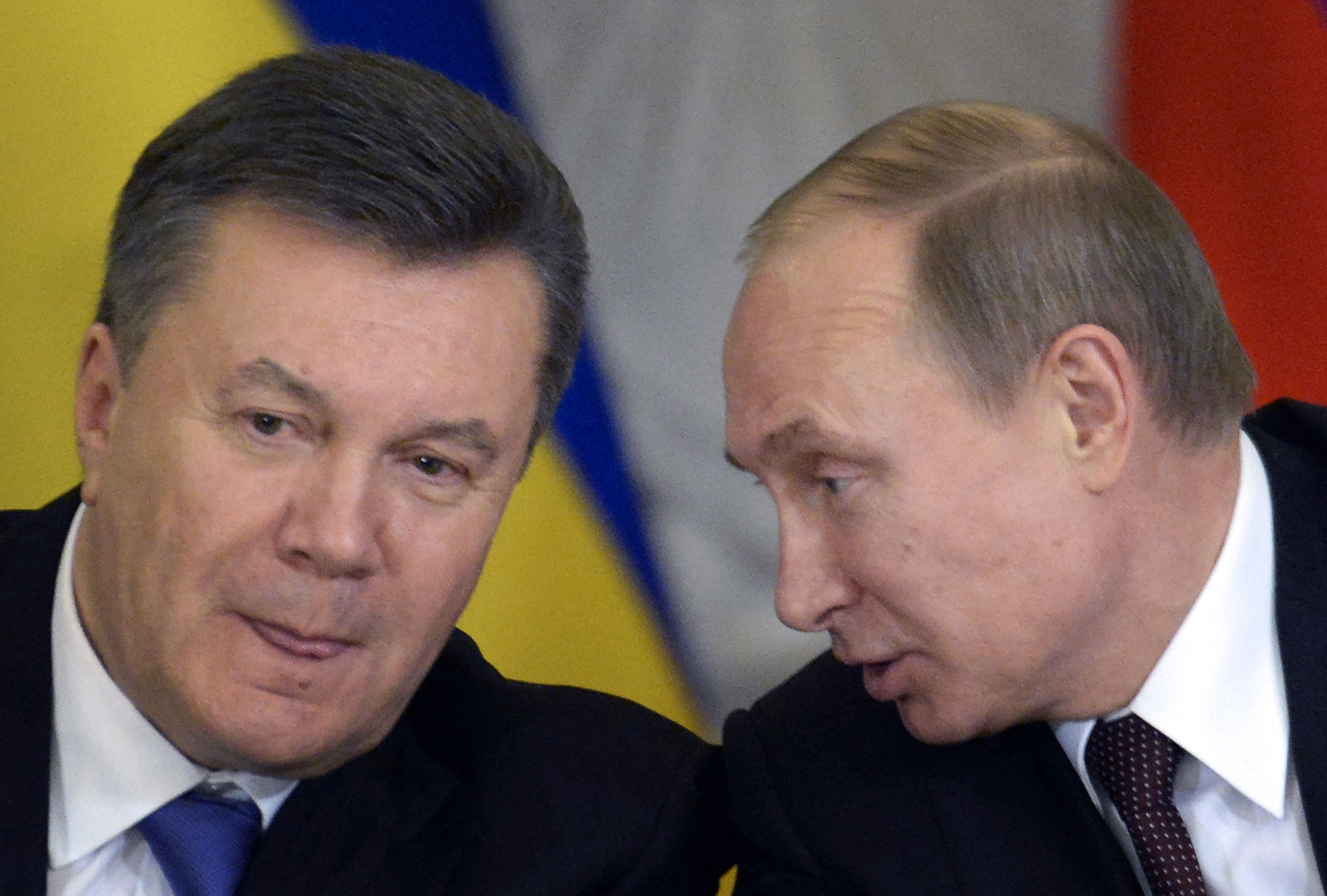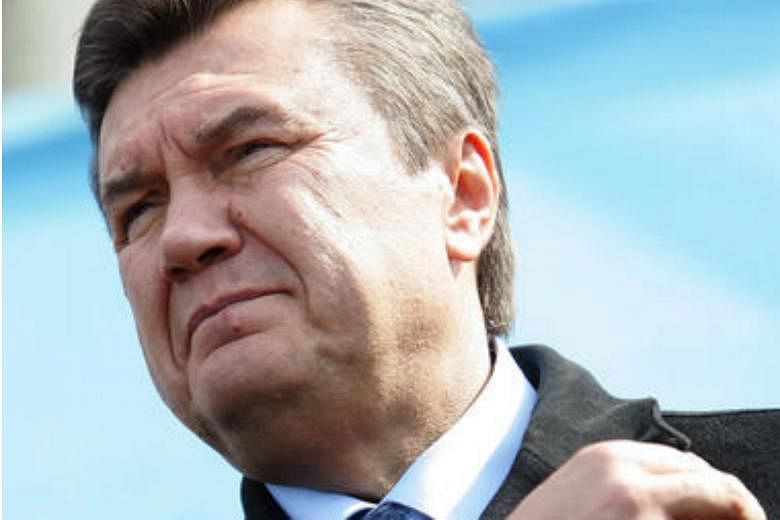When Ukraine's authorities first decided that Viktor Yanukovych, the country's deposed president, should stand trial for allegedly ordering the shooting of dozens of demonstrators against his regime, they envisaged the kind of trial to cleanse a nation's dark past, similar to those that took place in other former communist nations.
But as Yanukovych's trial is scheduled to start in Kiev, the Ukrainian capital, today, the event promises to be a damp squib. The former president has refused to attend court proceedings he dismisses as "politically motivated", and most Ukrainians are concerned with the drudgery of their daily existence, rather than raking over past events. For the Ukraine that emerged out of the turmoil of Yanukovych's rule has yet to regain its poise.
Yanukovych, 67, abandoned office in late February 2014 and fled to Russia in the face of massive protests triggered by his decision to scrap plans for a landmark deal with the European Union (EU) and improve trade ties with Moscow.
He remains in Russia, but has argued ever since that his rule was not corrupt, that stories of demonstrators shot on his orders are "fake news" and that he was overthrown as a result of a plot engineered by Western intelligence agencies.
There is no evidence for any of these claims. For Yanukovych has never managed to explain how, on a monthly official salary that never exceeded US$2,000 (S$2,700) throughout his life, he managed to build an opulent residential compound in which the chandeliers and other light fixtures cost around US$40 million. Nor did he ever provide an explanation on who ordered the Ukrainian forces to shoot into crowds of demonstrators.
And Yanukovych's claim that he was ousted by a coup does not bear much scrutiny either. For although there is no question that foreign governments became involved in Ukraine's crisis, the Ukrainian leader's regime collapsed only when his own security services abandoned him, forcing him to flee for his life in a plane provided by his oligarch friends.

Still, the accusations that will be read in court later today smack more of politics rather than the law. Yanukovych is charged with "encroachment on the territorial integrity and inviolability of Ukraine", a suggestion that he might have been complicit in the Russian annexation of Ukraine's Crimea peninsula. He is also charged with "high treason" and "waging an aggressive war or aggressive military actions" against his people.
Mr Ruslan Kravchenko, a prosecutor with the Ukrainian Main Military Prosecutor's Office, claimed during the opening hearing in this case last month that the current Ukrainian government has provided the court with "19 volumes of evidence" allegedly supporting the case against Yanukovych. If convicted, the former president is likely to spend the rest of his life behind bars.
But there is very little chance of this happening since Yanukovych has refused to be present in court, and a sentence will not be enforced.
Nor is there much interest on Yanukovych's fate within Ukraine itself. For although the country's economy may grow by a respectable 2.8 per cent this year, this comes after drops of 6.6 per cent in 2014 and 10 per cent in 2015, an economic shock far more severe than that experienced by any European nation in modern times, and even worse than Greece's national bankruptcy.
Massive overseas funding - primarily in the form of a US$17.5 billion loan from the International Monetary Fund - has been crucial to the current modest recovery. But corruption remains rampant and the EU, which initially insisted that the country should establish a special court to try corruption cases, has now dropped the demand to the dismay of Ukraine's own anti-corruption activists.
Meanwhile, the country's territorial division shows no signs of healing with ethnic Russian separatists in eastern Ukraine strengthening their hold over enclaves formed with Russia's military help, and Moscow refusing to return the Crimea peninsula, which it annexed in March 2014.
"We don't give back our own territory," said Mrs Maria Zakharova, the Russian Foreign Ministry's spokesman, in response to a recent appeal from the EU to resolve the dispute. The EU is now more lenient in the conditions it imposes on Ukraine largely because it fears that, as relations between Russia and the West nosedive, Russian President Vladimir Putin might be tempted to ratchet up the territorial pressure on Ukraine.
But although Ukraine's desire to be integrated with the EU despite all difficulties is clear, its ability to do so remains in doubt. Ultimately, it would also be difficult for Ukraine to avoid becoming the "buffer state" between Russia and the rest of Europe.
Yanukovych is almost certain to avoid being held to account for his own responsibility in this debacle.
But the people of Ukraine will continue to pay the price for years to come.


